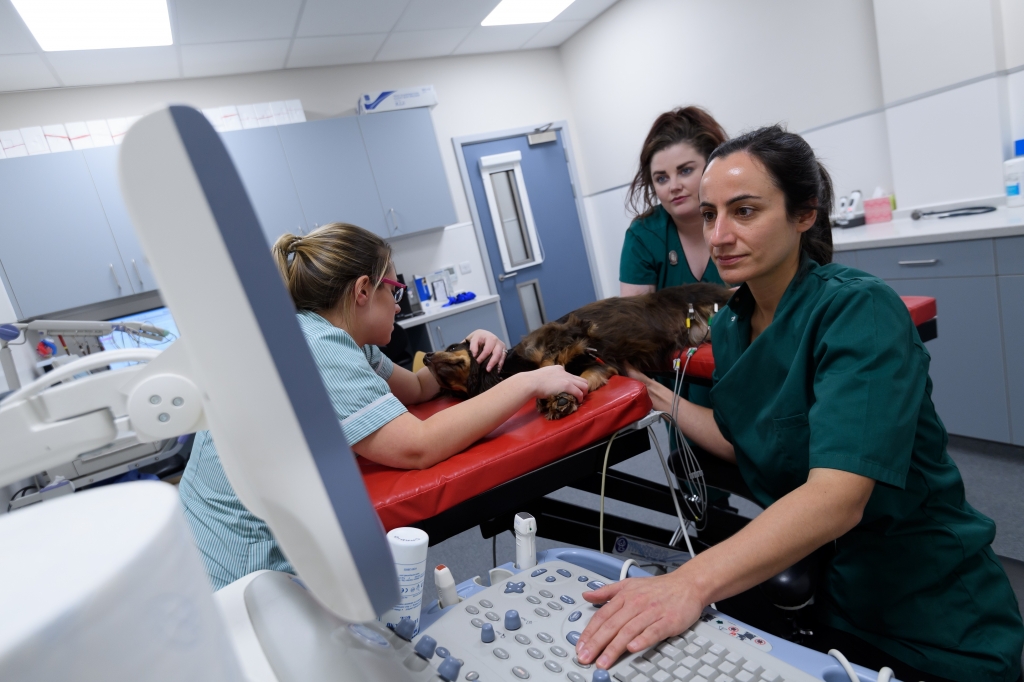
WILLOWS AT THE HEART OF INTERNATIONAL DOG STUDY
A top specialist at Willows Veterinary Centre is aiming to help revolutionise the treatment and care of dogs with life-threatening heart abnormalities.
Brigite Pedro, who is an expert in small animal cardiology, will be leading an in-depth, international study into atrial fibrillation, the serious problem of a very fast, or dramatically irregular, heartbeat.
Willows, which is part of the Linnaeus Group, has opened a dedicated clinic to focus on the often fatal complaint and Brigite is appealing to vets to support the project by referring cases to the state-of-the-art veterinary practice in Solihull.
Brigite explained: “At Willows, we are leading an international multi-centre study to further investigate the impact of this heart disorder on the quality of life and life expectancy of the affected dogs.
“This is an extremely important research project, so we need the co-operation of referring vets in the area to send cases to us to be included in the study.
“Clearly, the more cases we can assess then the more we can learn and the more we can help.
“The hope is this study will revolutionise the way in which this condition is treated in dogs around the world, both improving their day-to-day lives as well as giving them longer at home with their families.”
A dog’s normal heart-rate is 80-120 beats/min but those affected by atrial fibrillation can reach rates of more than 240-260 beats/min.
This “speeding” heartbeat often makes dogs lethargic, exercise intolerant and on occasion they can have breathing difficulties and may even collapse.
It’s all usually a sign of significant heart disease or an enlarged heart, both of which can be fatal complaints.
Brigite said: “Early diagnosis and prompt medication can help control and slow the heart rate, ease the condition and improve their quality of life and survival times.
“Our preliminary studies have showed that as well as improving the outcomes for affected dogs, the medications used were safe.
“We now want to add to those initial findings with a detailed study achieved by closely monitoring as many dogs with the condition as we can throughout 2018.
“We might not be able to fix the problem but our detailed analysis will mean we will have a much better understanding of how best to treat, contain and control the problem.”
To find out more about Willows Veterinary Centre and Brigite’s study, visit www.willows.uk.net.
More from Linnaeus Group
- Mars Veterinary Health publishes 2025 Science Impact Report highlighting global advances in pet health
- AMVS specialist gets to heart of puppy's problem
- Garston Veterinary Group team earn BVRA recognition
- Chihuahua Lola loving life after 'challenging' spinal surgery
- Vets save therapy cat's life following road accident

 8 years ago
8 years ago  1749 views
1749 views
 2 weeks ago
2 weeks ago